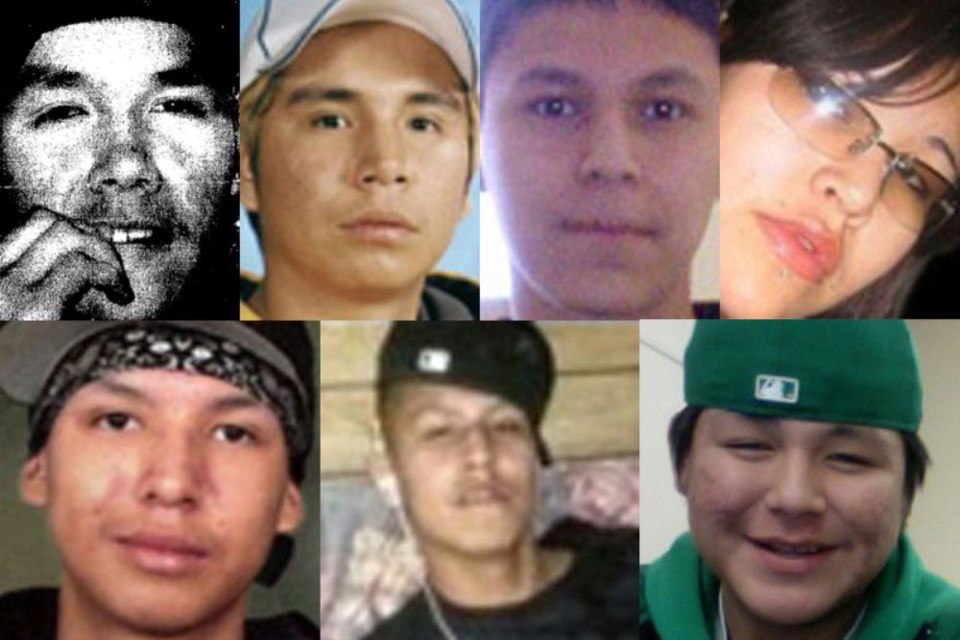THUNDER BAY – Three years after a coroner’s inquest into the deaths of seven Indigenous youth produced 145 recommendations aimed at preventing similar tragedies, city officials say the resulting changes of completed initiatives will carry into the future.
The city’s third-year report in responding to the recommendations of the Seven Youth Inquest was presented to Thunder Bay city council by administration during Monday night’s meeting.
The inquest probed the deaths of seven Indigenous youth – Jethro Anderson, Curran Strang, Paul Panacheese, Robyn Harper, Reggie Bushie, Kyle Morriseau and Jordan Wabasse – who all died while attending school in Thunder Bay away from their remote home communities between 2000 and 2011.
Of the 31 recommendations directed at the city, 25 were identified as short-term with an expected implementation period of one to two years. The city has completed 20 of those, while another four already had the content or intent of the recommendation in place and one alternate recommendation has been implemented.
The remaining six were classified as medium-term, with reasonable expectation to be implemented within two to four years. One of those has been implemented, with the other five in various stages of implementation.
Lawyers representing the families have compiled annual report cards grading the named parties. Last year the city improved to an A- score after a C+ grade in the first year.
“In many cases, we have implemented changes to the way that we do things at the corporation that we will continue on,” Thunder Bay Crime Prevention Council coordinator Lee-Ann Chevrette said.
“While we have said (a) particular recommendation has been implemented, it doesn’t mean that work is done. Much of this work will continue to be ongoing. I believe this is work that needs to be done going forward.”
The city’s efforts to address the recommendations include developing a five-year Youth Inclusion Program with $5.6 million in federal funding, granting for the former Grandview Lodge property to Matawa Learning Centre for a student education and care centre that opened last September, developing a First Nation Secondary School Pass for subsidized use of Thunder Bay Transit, which was provided to more than 300 students last year.
Despite the progress, Chevrette said difficult challenges remain ahead.
“We have racism in the community that needs to be addressed head on,” Chevrette said. “That’s addressing and changing attitudes. It’s not easy work. It’s big work and it’s really important work.”
Thunder Bay mayor Bill Mauro, who was among the city delegation to participate in a political table held in Ottawa earlier this year to update the status of the recommendations, said it’s clear progress is being made.
“It seems now that many of the named organizations are moving on. The day we were there, it seemed like much if not almost all the focus was on the provincial and the federal governments in terms of next steps, as some of the organizations perhaps feel they’re getting closer to the fulfillment of the recommendations from the inquest,” Mauro said.
Also on Monday, city officials formally announced the hiring of Regina Mandamin as the city’s first manager of Indigenous relations and inclusion. The daughter of the late Josephine Mandamin, a renowned activist who became known as the Grandmother Water Walker, she is a member of the Wiikwemkoong Unceded Traditional Territory on Manitoulin Island, but was born and raised in Thunder Bay.
Mandamin, who took on the role late last month and will manage the city's Aboriginal Liaison Office, said she was brought back through a sense of public service and what she can bring back to the community.
“I feel the city has been doing a good job but we could be doing a lot better,” Mandamin said, specifically pointing to the need for reflection of whether there are inadvertent barriers and ways to make policies more inclusive and more inviting for diverse and Indigenous populations.
“Dedicating a position in this type of leadership role will really position us best to perform on a daily basis and start working with key partners within the city. We’ve been doing a good job but it’s laid the foundation for us to do even better and have more sustainable progress rather than being responsive in terms of being reactionary.”
Creating and hiring the position was one of the city's first-year commitments to the Thunder Bay Anti-Racism and Inclusion Accord, of which the city was a founding member.
The coalition began with a coalition of 11 of the largest public sector employers in Thunder Bay, growing earlier this year with the addition of four new entities, including the Thunder Bay Chamber of Commerce to help reach the private sector.
